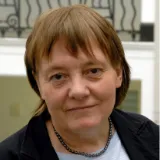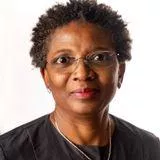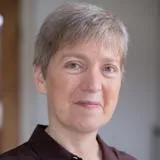InterSEC:Action
The issue of sexual exploitation and abuse (SEA) in the humanitarian sector is not new. Reports of SEA by peacekeepers, United Nations (UN) staff and civilian police can be traced back to at least the former Yugoslavia, Cambodia and East Timor in the early-1990s. It has been exposed in most, if not all, peacekeeping, and humanitarian operations since. There is no standard way to collect data on SEA. Only the UN operates different tracking, reporting and assessment systems, but discrepancies in the prevalence reported has arisen because of the different methodologies employed. There have also been frequent changes, sometimes annually, in the categories of SEA used to report incidence making analysis of trends difficult. In addition, non-government organisations (NGOs) often use qualitative data from focus groups and unstructured interviews to determine the nature and scale of SEA, whilst informative about the context of individual cases, this approach is difficult to scale up or employ in a meaningful way. These variables have hampered attempts to develop a consistent way to measure prevalence and estimate the scale of SEA and often led to underreporting and impacts wider understanding of the extent of the problem.
Only one attempt has been made to estimate the global scale of SEA by aid workers and peacekeepers over the past decade. Hear Their Cries has estimated that over the last decade there could be up to 30,000 incidents of SEA perpetrated by peacekeepers and 60,000 by all UN staff. This number has subsequently been challenged for lack of rigour. Hear Their Cries agrees and points out the lack of analysable data is a huge problem that needs rectification. In 2018 the British House of Commons released a damning report on the Aid Sector condemning the sector as ‘complacent verging on complicit’ in abuse and exploitation by aid workers. The report concluded that the scale of abuse is impossible to tell because of the limited data available.
This project seeks to carry out a systematic review to establish the state of the knowledge base and attempt to estimate the global extent of sexual exploitation in the Aid Industry by pooling expertise across the university. In a second phase, the group will conduct a pilot study (proof of concept) using genetics and genetic genealogy to sample children, identified as born of abuse, and analyse their DNA to track the fathers. In turn, this evidence will be used for collective accountability and possible fraternal identification and impact on individual criminal and civil accountability. Finally, we aim to establish a permanent scientifically and ethically robust mechanism to find victims of such abuse, and their children, and obtain justice and rights for those involved.
External Investigators
|
Jessica Toale |
|
|
Mr Peter Gallo |
Scottish Attorney at Law, Former Investigator in the UN’s Office of Internal Oversight, Co-Founder Hear Their Cries |
|
Mr James Netto |
Partner: The International Family Law Group LLP |
|
Edward P Flaherty |
Senior Partner, Juris Doctor, |
|
Dr Hajara Yusuf |
Ministry of Justice, Nigeria |
Aims
- Our overall aim is to establish and seek ongoing funding for an international-facing multidisciplinary centre at King’s to deliver politically independent solutions for legal, systematic, and operational changes to reduce incidence of sexual exploitation and abuse.
- Address the significant lack of evidenced-based data in this field
- Design politically independent solutions for governments, NGOs and United Nations agencies that reduce sexual exploitation and abuse
Methods
- Systematic review of the scientific literature
- Conduct additional primary research, particularly into methods to identify victims of abuse and the scale and causes of abuse.
- Use innovative technologies including DNA analysis and genetic genealogy as key research tools
Trials Design
Pilot study
The InterSEC:Action team plan to undertake a pilot study in Sierra Leone to test the use of DNA sampling and genetic genealogy to access justice for victims and prevent future sexual exploitation and abuses. The study will focus on a sub-set of cases where a child has been born. We are aiming to recruit six Sierra Leonean adults who believe that their fathers have a Western European/white background as a proof-of-concept study to see if we can identify who the fathers are. If fathers are found then participants will be introduced to relevant legal representation to advise them on their rights vis-a-vie their fathers, with that legal advice being independent from KCL.
Summary of Findings
The InterSEC:Action team carried out a review to understand the nature and scale of sexual exploitation in the aid industry. Key finds include:
- There is no systematic data on the prevalence on sexual exploitation and abuse (SEA) by civilian aid workers
- Since 2017 allegations of SEA against UN staff, related personnel and implementing partners is consistently higher than military and police contingents of peacekeeping missions
- There is a gulf between official UN reported statistics on allegations of SEA and the qualitative findings from NGO and media investigations into the matter. While the latter report the problem to be ‘pervasive’ and ‘widespread’, the UN has acknowledge only 2000 allegations since 2003.
- In both UN statistics and NGO and media reports, sexual exploitation in the form of transactional sex or exploitative relationships is more prevalent than sexual abuse.
- Women and girls are most vulnerable to SEA – UN statistics show that 80% of the victims are women
- Perpetrators are most often local men in positions of power – UN statistics show that locally employed staff and contractors account for 60% of the allegations
- Official statistics mask significant underreporting – this is attributed to 1) chronic underreporting by victims and communities due to fear of reprisals, stigma or lack of knowledge of how to report; 2) lack of standardised reporting and data collection mechanisms; and 3) underreporting or deliberate cover-up by aid agencies and staff.
Impact
By establishing a permanent scientifically and ethically robust mechanism to find victims of such abuse, and their children the impact of this work will have a global reach serving the university mission statement ‘in service of society’ by not only assisting the victims of the study in identifying their genetic heritage, but by also creating a ‘fear of detection’ in the minds of future perpetrators and thus hoping to decrease future SEA.
Our Partners
Principal Investigators
Investigators
Affiliations
Funding
Funding Body: King's Together Seed Fund
Amount: £74, 657
Period: November 2021 - November 2022








